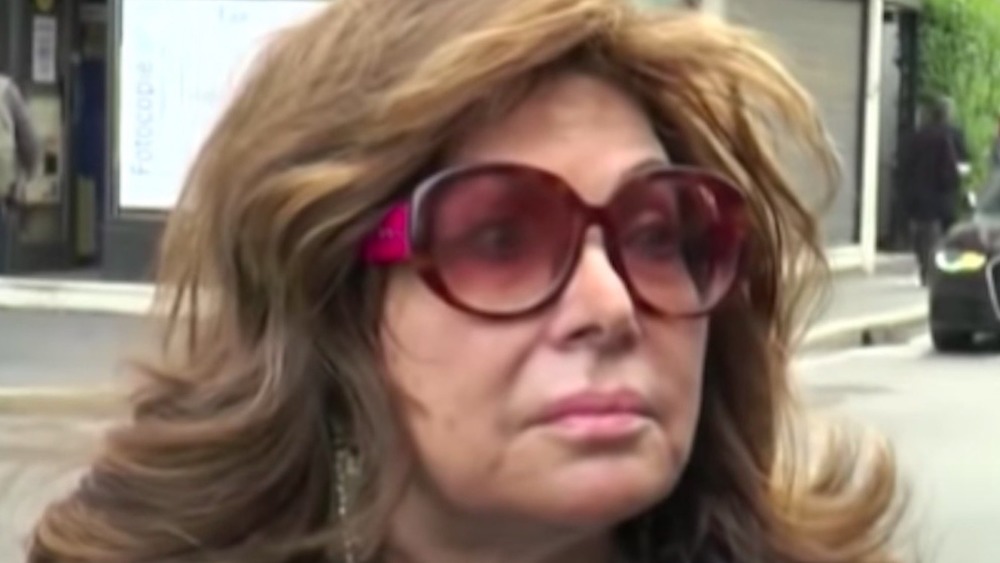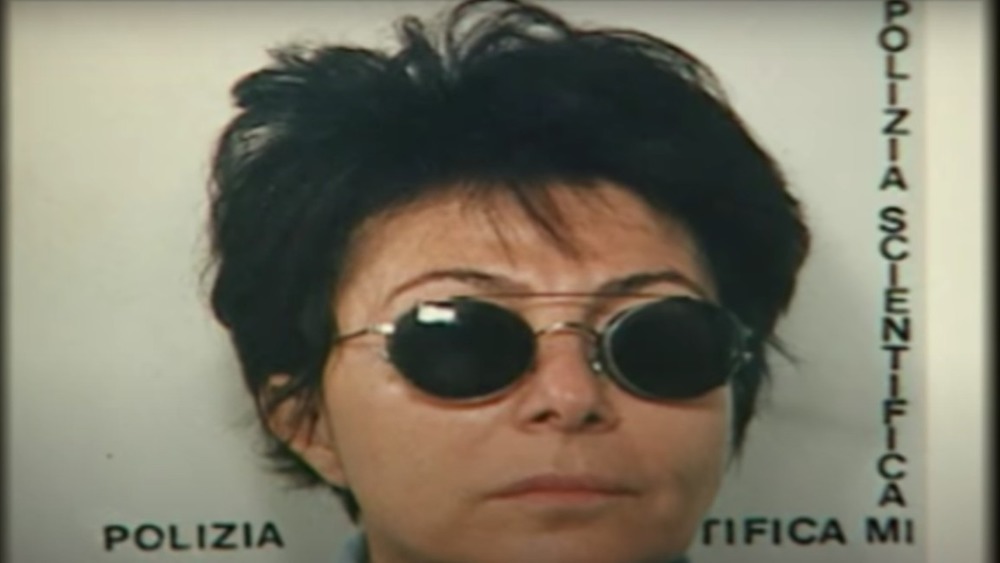What Prison Was Really Like For Patrizia Reggiani
Given that the Gucci brand is synonymous with luxury and high-fashion, it's probably unsurprising that it has become such a staple of the hip-hop music scene. But those only familiar with the brand in recent decades might be surprised to hear that there's a more unsettling word it is inextricably linked to: murder.
The forthcoming true-crime documentary Lady Gucci: The Story of Patrizia Reggiani — which is set to air on March 20 via Discovery+ — will spotlight this murder by focusing on the notorious Gucci wife's life and time in prison. The mastermind behind the assassination of her ex-husband, Maurizio Gucci, Reggiani was sent to Milan's San Vittore prison for her crime, which she still denies committing, and remained there until being released in 2016 for good behavior.
After returning to the real world, Patrizia Reggiani appeared to be ready to put her life in prison behind her. During an interview with The Guardian, she called the time a "bad dream" and indicated her dislike for talking about her experience behind bars, which she curiously referred to as her "stay at Vittore Residence." Despite her reticence, the interview did reveal tidbits about her time cut off from the world, which she claimed was primarily spent sleeping and taking care of her plants.
Yet while Reggiani suggested that her ability to endure years of captivity was a reflection of her resolve, the information surrounding her imprisonment doesn't paint the picture of an ordinary prison experience — especially for someone who was convicted of ordering a murder.
Reggiani appeared to have cushy treatment in prison
Given what is known about Reggiani's life behind bars, she appeared to have access to luxuries, although whether this is the result of her high-profile is unclear. In addition to gaining the special privilege of a pet ferret, The Daily Beast noted that Reggiani appeared in court with manicured nails while flashing fur coats and stiletto heels, despite being in prison at the time.
Perhaps the most glaring example that prison life did not force Reggiani to completely relinquish her penchant for glamour is when she refused an offer of work-release-based parole and remained behind bars; the reason she provided is even more revealing: "I've never worked a day in my life; I'm certainly not going to start now," she said.
Elsewhere, during her interview with The Guardian, Reggiani suggested that she sometimes longs for prison as an escape from the harsh treatment she receives from her mother.
Still, the isolation took its toll on Reggiani, despite her unwavering exterior. Forbes reported that she tried to commit suicide following her transfer to a prison that took her far from the facility in the heart of Milan to which she was so accustomed.

